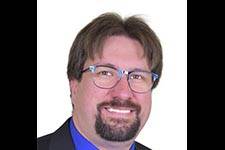By Robert Myers
The news out of Washington over the last couple of weeks leads me to believe that we will be getting an infrastructure package out of Congress sometime this summer. For most of the country, there are largely two reasons used to justify the package: provide some jobs for the next couple of years as we come out of the recession and repair and modernize infrastructure that has not been updated in years. With Alaska being an infrastructure poor state, this is all very useful.
We have a third reason that this money will be useful and that may even take primacy. Our operating budget is the millstone around our neck right now, and we can use the capital spending to help reduce our operating costs over the next few years. For example, the Senate Transportation Committee spent a lot of time looking at the ferry system this year. Part of the reason that the ferries cost so much is because many of the ships are at or near the end of their useful lives. Simply keeping the boats operational is draining our accounts. If we could use some of this money to replace a ship or two, we could dramatically reduce their cost of operations once they are put into use. At the same time, we have a few islands that have more than one port of call. If we could connect some of those ports with a road, we could reduce the number of stops while still maintaining access to the system.
Another piece of our operations that has attracted attention over the last few years is the Power Cost Equalization Program. While the intentions of the program are good, it has often become just a subsidy for buying diesel. Instead, we could use the infrastructure money to build renewable systems or create small grids among multiple villages to increase efficiency and reduce operating costs.
On the road network, we can identify perennial problem areas on our highways that we can look at reengineering or moving the roadbed to avoid permafrost or erosion so that our road crews are not fixing these same spots every year. If we have state installations that tend to suffer from vandalism, we can put up cameras and other security systems. We can look at some of our antiquated buildings that we can rebuild or refurbish to save electrical and heating costs.
We have some opportunities coming up that can help us with our perennial budget problems. As legislators, we will be looking for these types of projects, but we cannot see everything. If you are a state employee or live in an area that could benefit from some modernization to save costs down the road, please contact your legislators over the next couple of months to help us identify the project possibilities and get the best return on our investment.
Contact your legislator or contact the Senate Transportation Committee at Senate.Transportation@akleg.gov.
Robert Myers, a North Pole Republican, is a state senator representing District B.

